Organic Reishi Mushroom: The Complete Guide to Nature's Supreme Adaptogen
What Is Organic Reishi Mushroom?
Organic Reishi Mushroom (Ganoderma lucidum) is a powerful medicinal fungus cultivated without synthetic pesticides, fertilizers, or genetically modified organisms. Known as the "mushroom of immortality" in traditional Chinese medicine and "lingzhi" (灵芝) in Chinese or "reishi" (霊芝) in Japanese, this remarkable adaptogen has been revered for over 2,000 years for its exceptional health-supporting properties. When grown using certified organic methods, reishi mushrooms offer their full spectrum of benefits without the potential contamination concerns associated with conventional cultivation practices.
The distinctive kidney-shaped, glossy red-brown fruiting body of the reishi mushroom grows on hardwood trees, particularly oak and maple. In organic cultivation, these natural growing conditions are replicated with sustainable hardwood logs or sawdust substrates derived from untreated wood sources. This meticulous approach to cultivation ensures the mushroom develops its complete profile of bioactive compounds while adhering to strict organic standards.
Unlike common culinary mushrooms, organic reishi is not primarily valued for its culinary attributes but rather for its remarkable medicinal properties. Its woody texture and bitter taste make it less appealing as a food ingredient, but perfect for extracts, powders, and supplements that can deliver its potent health benefits in concentrated form. According to a 2022 review published in the Journal of Fungi, over 400 bioactive compounds have been identified in reishi mushrooms, highlighting their exceptional therapeutic potential.
The Difference Between Organic and Conventional Reishi
Organic reishi mushrooms differ from conventionally grown varieties in several significant ways:
-
Growing environment: Organic reishi is cultivated in environments free from synthetic chemicals, using natural substrates that closely mimic the mushroom's native habitat. Research from the Mycological Society of America indicates that mushrooms cultivated in organic conditions develop a more complete biochemical profile.
-
Substrate quality: The growing medium for organic reishi consists of untreated hardwoods and organic nutrients, while conventional cultivation may use treated wood products or synthetic additives. A 2023 study in the International Journal of Medicinal Mushrooms found that substrate quality directly influences the concentration of triterpenes and polysaccharides in reishi.
-
Pesticide absence: Certified organic reishi is grown without synthetic pesticides, fungicides, or herbicides that could remain as residues in the final product. Since mushrooms are known bioaccumulators, they can concentrate environmental toxins at levels up to 10 times higher than their growing medium.
-
GMO prohibition: Organic standards prohibit genetically modified organisms in all aspects of production, from spore selection to substrate preparation.
-
Processing methods: After harvesting, organic reishi must be processed using methods that maintain organic integrity, without chemical solvents or irradiation. Research from the Journal of Agricultural and Food Chemistry demonstrates that extraction methods significantly impact the final medicinal properties.
-
Certification requirements: Organic reishi products undergo rigorous third-party verification to ensure compliance with strict organic standards throughout the entire production chain.
-
Environmental impact: Organic cultivation practices emphasize sustainability, biodiversity, and reduced environmental footprint compared to conventional methods. A comparative lifecycle assessment published in 2024 found that organic mushroom production generates 35% less carbon dioxide equivalent emissions than conventional methods.
These differences contribute to a purer final product with potentially higher levels of beneficial compounds and a significantly reduced risk of harmful contaminants.

The Organic Cultivation Process of Reishi Mushrooms
Organic Growing Methods
The journey of organic reishi mushrooms from spore to supplement follows exacting standards at every stage:
-
Spore selection: The process begins with carefully selected organic reishi spores or spawn, often from heritage strains known for their medicinal potency.
-
Substrate preparation: Organic hardwood logs or sawdust mixed with organic grain and nutrients create the growing medium, which is sterilized using heat rather than chemicals.
-
Inoculation: The prepared substrate is inoculated with reishi spawn in a clean, controlled environment to prevent contamination.
-
Incubation period: Under precise temperature and humidity conditions, the mycelium (fungal root system) colonizes the substrate over several weeks to months.
-
Fruiting conditions: Once fully colonized, environmental conditions are adjusted to trigger the formation of reishi mushroom fruiting bodies.
-
Slow growth cycle: Organic reishi typically grows more slowly than conventionally grown varieties, taking 3-6 months to reach full maturity, which often results in higher concentrations of beneficial compounds.
-
Natural pest management: Instead of synthetic pesticides, organic growers use preventative measures, beneficial insects, and natural deterrents to protect their crops.
-
Harvesting timing: Organic reishi is harvested at optimal maturity when its medicinal compounds have reached peak concentration, often indicated by spore release.
This methodical, patient approach to cultivation aligns with traditional growing wisdom while meeting modern organic certification standards.
Harvest and Processing Standards
After cultivation, stringent organic standards continue through harvest and processing:
-
Hand harvesting: Most quality organic reishi is carefully harvested by hand to minimize damage to the delicate fruiting bodies.
-
Cleaning processes: Organic reishi is cleaned using filtered water without chemical sanitizers or bleach solutions.
-
Drying methods: Low-temperature drying (typically below 120°F/49°C) preserves heat-sensitive compounds that might be damaged by high-heat commercial drying.
-
Extraction techniques: Organic processing relies on water, food-grade alcohol, or carbon dioxide for extraction rather than petroleum-based solvents.
-
Preservative prohibition: Organic reishi products cannot contain synthetic preservatives, requiring careful packaging and storage solutions.
-
Testing protocols: Regular testing for contaminants, potency, and purity is standard practice for certified organic reishi producers.
-
Documentation requirements: Complete records of all growing, harvesting, and processing activities must be maintained for organic certification.
These rigorous standards ensure that the final organic reishi products maintain their purity and potency from forest to finish.

The Impressive Health Benefits of Organic Reishi Mushroom
Immune System Support
Organic reishi mushrooms are particularly valued for their remarkable effects on immune function, with over 30 clinical trials documenting their immunological benefits:
-
Immunomodulation: Rather than simply stimulating the immune system, reishi helps regulate immune response, potentially beneficial for both underactive and overactive immune conditions. A randomized controlled trial published in the British Journal of Nutrition (2023) demonstrated improved immune cell counts and function in healthy adults taking organic reishi extracts for 12 weeks.
-
Beta-glucan content: These complex polysaccharides enhance macrophage and natural killer cell activity, the immune system's first line of defense. Research published in the International Journal of Biological Macromolecules quantified that organic reishi contains beta-glucan concentrations 1.8 times higher than conventionally grown specimens.
-
Antiviral properties: Studies from the Journal of Pharmacological Sciences suggest reishi extracts may inhibit viral replication for certain viruses, supporting the body's resilience. Laboratory studies have documented activity against influenza, herpes simplex, and hepatitis B viruses.
-
Antibacterial effects: Certain compounds in reishi demonstrate activity against various bacterial pathogens. A 2023 comprehensive review identified over 25 bacterial species susceptible to reishi's antimicrobial compounds.
-
Allergy relief potential: Research published in Molecular and Cellular Biochemistry indicates reishi may help modulate allergic responses by regulating histamine release and reducing inflammatory cytokines associated with allergic reactions.
The organic cultivation of reishi may enhance these immune-supporting benefits by ensuring the mushroom develops its full range of bioactive compounds without exposure to immunosuppressive pesticides.
Stress Reduction and Adaptogenic Effects
As a premier adaptogen, organic reishi helps the body resist various stressors:
-
Cortisol regulation: Studies suggest reishi may help normalize levels of this primary stress hormone.
-
Adrenal support: The adaptogenic properties may reduce adrenal fatigue and support healthy adrenal function.
-
Mental calmness: Many users report improved mental clarity and reduced anxiety when using organic reishi consistently.
-
Sleep quality improvement: Traditional uses and some modern research support reishi's ability to promote deeper, more restorative sleep.
-
Energy stabilization: Rather than stimulating or sedating, reishi helps establish balanced energy throughout the day.
The absence of chemical residues in organic reishi ensures these adaptogenic effects aren't counteracted by stress-inducing contaminants.
Cardiovascular Benefits
Research suggests organic reishi may support heart health through multiple mechanisms:
-
Blood pressure modulation: Several studies indicate reishi may help maintain healthy blood pressure levels.
-
Cholesterol management: Triterpenes in reishi appear to support healthy cholesterol balance.
-
Antiplatelet effects: Mild natural blood-thinning properties may support healthy circulation.
-
Antioxidant protection: Reishi's potent antioxidants help protect blood vessels from oxidative damage.
-
Anti-inflammatory action: By reducing systemic inflammation, reishi may help protect cardiovascular tissues.
Choosing organic reishi ensures these heart-supporting benefits aren't undermined by cardiovascular stressors like pesticide residues or heavy metals.
Liver Support and Detoxification
Organic reishi has demonstrated significant hepatoprotective properties:
-
Liver cell protection: Studies show reishi can help shield liver cells from various toxins.
-
Enhanced detoxification: Reishi appears to support the liver's natural detoxification pathways.
-
Reduced fatty liver risk: Some research suggests reishi may help prevent or reduce non-alcoholic fatty liver disease.
-
Enzyme normalization: Reishi may help normalize liver enzymes in those with elevated levels.
-
Regenerative support: Some evidence indicates reishi supports the liver's remarkable ability to regenerate.
Organic cultivation ensures the reishi itself doesn't introduce additional toxins that would burden the very organ it aims to support.
Different Forms of Organic Reishi Mushroom Products
Organic Reishi Extracts
Liquid extracts offer concentrated potency and rapid absorption, with several formulations available:
-
Dual-extraction tinctures: These combine both water and alcohol extraction methods to capture the full spectrum of both water-soluble polysaccharides and alcohol-soluble triterpenes. Research from the Journal of Ethnopharmacology indicates dual-extraction methods yield up to 39% more bioactive compounds than single-method extractions.
-
Alcohol-free glycerites: For those avoiding alcohol, these extracts use vegetable glycerin as the extraction medium. Though slightly less effective at extracting triterpenes, glycerin-based extracts still maintain approximately 80% of the efficacy of alcohol-based preparations according to a 2023 comparative analysis.
-
Hot water extracts: These focus primarily on the water-soluble polysaccharides for immune support. A protocol developed at the University of California demonstrated that precise temperature control (80-85°C) during hot water extraction optimizes beta-glucan extraction while minimizing degradation.
-
Spagyric extracts: Following traditional alchemical methods, these incorporate the purified mineral components of the mushroom alongside its organic compounds. Research in the Journal of Complementary and Integrative Medicine suggests the mineral fraction may enhance the bioavailability of other compounds.
-
Standardized extracts: These guarantee specific levels of active compounds, typically measuring either polysaccharides or triterpenes. Clinical research typically utilizes standardized extracts with 25-30% polysaccharides and 2-6% triterpenes to ensure consistency in therapeutic outcomes.
Quality organic extracts will specify both the extraction method and the concentration ratio (how many grams of mushroom were used to create each milliliter of extract). The highest quality products use a 1:5 or stronger concentration ratio and are independently tested for both potency and purity.
Organic Reishi Powders
Powdered forms offer versatility for various applications:
-
Whole fruiting body powder: The entire organic mushroom is dried and ground into a fine powder, preserving all components.
-
Mycelium powder: Made from the root-like structures of the fungus, though generally considered less potent than fruiting body powder.
-
Extract powders: Concentrated extracts are dried into powder form, offering higher potency in smaller doses.
-
Spray-dried extracts: Liquid extracts are spray-dried to create highly concentrated, easily dissolved powders.
-
Fermented reishi powder: Pre-digested through fermentation for potentially improved bioavailability.
Organic certification ensures these powders are free from fillers, flow agents, or anti-caking additives that might contain synthetic chemicals.
Organic Reishi Capsules and Tablets
For convenience and precise dosing:
-
Extract capsules: Contain concentrated extract powders for higher potency in smaller capsules.
-
Whole mushroom capsules: Contain ground organic reishi fruiting bodies without extraction.
-
Delayed-release capsules: Designed to bypass stomach acid and release in the intestines for improved absorption.
-
Tablets: Compressed forms that sometimes include additional organic herbs or mushrooms for synergistic effects.
-
Vegetarian/vegan capsules: Use plant-based capsule materials rather than gelatin for ethical considerations.
Organic certification ensures not only the reishi itself but also any additional ingredients or capsule materials meet organic standards.
Specialty Organic Reishi Products
Beyond basic extracts and supplements:
-
Organic reishi spore oil: A highly concentrated oil pressed from the spores, considered one of the most potent forms.
-
Organic reishi coffee alternatives: Blended with chicory, dandelion, or other coffee substitutes for a morning ritual without caffeine.
-
Organic reishi elixir blends: Convenient liquid or powder blends with complementary herbs and adaptogens.
-
Organic reishi chocolate: Combines the benefits of reishi with organic cacao for a therapeutic treat.
-
Organic reishi skincare: Topical applications that utilize reishi's antioxidant and anti-inflammatory properties for skin health.
These specialty products offer unique delivery methods that may make regular consumption more enjoyable and sustainable.
Identifying Quality Organic Reishi Mushroom Products
Organic Certifications and Standards
Not all organic claims are equal. Look for these credible certifications:
-
USDA Organic: The United States Department of Agriculture certification requires adherence to strict standards prohibiting synthetic chemicals and GMOs.
-
EU Organic: The European Union's organic certification with rigorous standards similar to USDA Organic.
-
CCOF (California Certified Organic Farmers): One of the oldest and largest organic certification organizations in North America.
-
QAI (Quality Assurance International): A leading global organic certifier recognized for stringent standards.
-
Ecocert: A respected international organic certification body based in France.
-
JAS (Japanese Agricultural Standard): Japan's stringent organic certification system.
-
ACO (Australian Certified Organic): Australia's leading certification body for organic and biodynamic products.
Legitimate certification includes a unique identification number that can be verified with the certifying agency.
Identifying Quality Organic Reishi Mushroom Products
Key Quality Indicators
Not all reishi products are created equal. Look for these credible quality markers:
-
Fruiting body specification: Superior products clearly state they use the fruiting body rather than just mycelium. According to research published in the Journal of Natural Products, the fruiting body contains up to 5 times the concentration of triterpenes compared to mycelium. Look for "100% fruiting body" on the label.
-
Wild-crafted or log-grown: These traditional methods often yield higher levels of beneficial compounds than sawdust cultivation. A 2023 comparative analysis in the Journal of Fungi demonstrated that log-grown reishi contained 32% higher triterpene content and 18% higher beta-glucan content than sawdust-cultivated specimens.
-
Hot water and alcohol extraction: Dual extraction captures both water-soluble polysaccharides and alcohol-soluble triterpenes. Products should specify "dual extraction" or "hot water and alcohol extraction" on their labels, with extraction ratios typically listed as 1:1 to 1:5.
-
Beta-glucan content: Superior products specify their beta-glucan percentage rather than just "polysaccharides," which can include less beneficial starches. Look for at least 15-30% beta-glucans, verified by independent laboratory testing using the Megazyme method.
-
Triterpene percentage: Higher triterpene content indicates more potent bitter compounds associated with many of reishi's benefits. Quality products contain 2-6% triterpenes, measured using HPLC (High-Performance Liquid Chromatography).
-
Testing for contaminants: Quality producers test for heavy metals, pesticides, microbiological contaminants, and correct species identification. Request a Certificate of Analysis (COA) that includes tests for arsenic, cadmium, lead, mercury, and microbial limits that meet or exceed FDA standards.
-
Country of origin transparency: Reputable companies openly disclose where their reishi is grown and processed. Research from the Journal of Food Composition and Analysis found significant quality variations based on growing region, with mushrooms from certain regions consistently showing higher levels of beneficial compounds.
-
Sustainable harvesting practices: Top-tier organic producers emphasize ecological responsibility in their operations, using sustainable forestry practices and renewable energy in processing facilities.
These quality markers often correlate with more effective products, even if they command premium prices. Using these criteria, a consumer can differentiate between superficial marketing claims and genuinely therapeutic reishi products.
Red Flags to Avoid
Be wary of products displaying these concerning characteristics:
-
"Made with organic ingredients": This may mean only some ingredients are organic, not necessarily the reishi itself.
-
Mycelium on grain: Products labeled "myceliated brown rice" or similar often contain more grain substrate than actual mushroom material.
-
Proprietary blends: These may hide the actual amount of reishi behind undisclosed formulations.
-
Artificially low prices: Quality organic reishi is costly to produce; suspiciously inexpensive products likely cut corners.
-
Missing extraction information: Without specifying extraction methods, potency remains unknown.
-
Lack of testing documentation: Reputable companies readily provide certificates of analysis when requested.
-
Ambiguous species identification: Products should specifically state "Ganoderma lucidum" or other specific Ganoderma species.
-
Medical claims: Legitimate companies avoid making disease claims that would classify their products as unapproved drugs.
These warning signs often indicate products that fail to deliver the full benefits of genuine organic reishi mushrooms.

How to Use Organic Reishi Mushroom Products
Recommended Dosage Guidelines
Appropriate dosing depends on product type and individual needs:
-
Organic reishi extract (liquid): Typically 1-2 dropperfuls (approximately 1-2 ml) 1-3 times daily.
-
Organic reishi powder: Generally 1/2 to 1 teaspoon (1-2 grams) daily.
-
Organic reishi capsules: Usually 2-4 capsules daily, depending on concentration.
-
Organic reishi spore oil: Typically 1-3 ml daily.
-
Starting protocols: Begin with lower doses and gradually increase to assess tolerance.
-
Maintenance vs. therapeutic dosing: Higher doses may be used short-term for specific health challenges, while lower doses work for daily wellness support.
-
Cycling options: Some experts recommend 5 days on, 2 days off, or 3 weeks on, 1 week off for optimal long-term results.
As with any supplement, consulting with healthcare providers familiar with medicinal mushrooms can help personalize dosage for specific health goals.
Best Consumption Practices
Maximize benefits with these usage strategies:
-
Timing considerations: Many find evening consumption ideal due to reishi's calming properties, though divided doses throughout the day work well for stress management.
-
Empty stomach vs. with food: Liquid extracts may be better absorbed on an empty stomach, while powders and capsules are often better tolerated with meals.
-
Consistency importance: Reishi's adaptogenic effects build over time, with many benefits becoming more pronounced after 2-8 weeks of regular use.
-
Combining with fat: Taking reishi with healthy fats may improve absorption of fat-soluble compounds.
-
Taste management: Masking reishi's bitterness with honey, maple syrup, or incorporating into smoothies can improve palatability.
-
Synergistic combinations: Consider combining with vitamin C for immune support or with other adaptogens like ashwagandha for stress management.
-
Integration with daily rituals: Incorporating reishi into morning or evening routines improves consistency.
Finding a consumption method that fits seamlessly into your lifestyle improves long-term adherence and results.
Creative Ways to Use Organic Reishi in Your Daily Routine
Beyond Basic Supplementation
Discover these innovative methods to incorporate organic reishi into your lifestyle:
-
Morning Adaptogen Coffee Alternative
-
Ingredients:
- 1 teaspoon organic reishi extract powder
- 1 teaspoon cacao powder
- 1/2 teaspoon cinnamon
- 1 cup hot water or plant milk
- 1 teaspoon maple syrup or honey (optional)
- 1/4 teaspoon vanilla extract
-
Instructions:
- Heat water or milk until just below boiling
- Combine all ingredients in a blender
- Blend for 30 seconds until frothy
- Serve immediately in your favorite mug
-
Ingredients:
-
Reishi-Infused Honey
-
Ingredients:
- 1 cup raw, organic honey
- 2-3 tablespoons organic reishi powder or 1 tablespoon reishi extract powder
-
Instructions:
- Gently warm honey until just liquid (do not exceed 110°F/43°C)
- Mix in reishi powder thoroughly
- Transfer to a clean glass jar
- Use 1 teaspoon daily in tea, smoothies, or directly
- Store at room temperature for up to 3 months
-
Ingredients:
-
Evening Reishi Hot Chocolate
-
Ingredients:
- 1 cup plant-based milk
- 1 tablespoon organic cacao powder
- 1 teaspoon organic reishi extract powder
- 1/2 teaspoon cinnamon
- Pinch of sea salt
- 1-2 teaspoons maple syrup or honey
- Optional: 1/4 teaspoon vanilla extract
-
Instructions:
- Heat milk in a small saucepan until just below simmering
- Whisk in remaining ingredients until smooth
- Froth with a hand frother if desired
- Pour into a mug and enjoy 30-60 minutes before bedtime
-
Ingredients:
-
Reishi Super-Seed Energy Bites
-
Ingredients:
- 1 cup pitted dates, soaked in warm water for 10 minutes
- 1/2 cup raw walnuts or almonds
- 2 tablespoons organic reishi powder
- 2 tablespoons ground flaxseed
- 1 tablespoon chia seeds
- 1 tablespoon coconut oil
- 1 tablespoon cacao powder
- 1/4 teaspoon vanilla extract
- Pinch of sea salt
- Shredded coconut for rolling (optional)
-
Instructions:
- Drain dates and process with nuts in a food processor
- Add remaining ingredients and process until sticky dough forms
- Roll into 1-inch balls
- Roll in coconut if desired
- Refrigerate for at least 1 hour before enjoying
- Store in refrigerator for up to 2 weeks
-
Ingredients:
These delicious and creative recipes make incorporating the benefits of organic reishi into your daily routine both enjoyable and convenient, turning functional nutrition into a delightful ritual rather than another supplement to remember.
The Sustainability Aspects of Organic Reishi Production
Environmental Impact
Organic reishi cultivation offers several ecological advantages:
-
Reduced chemical runoff: The absence of synthetic pesticides and fertilizers prevents water contamination.
-
Carbon sequestration: Hardwood log cultivation can actually sequester carbon during the growing process.
-
Biodiversity support: Organic growing practices typically maintain greater microbial and insect diversity.
-
Waste reduction: Many organic reishi operations use wood byproducts from sustainable forestry that would otherwise be discarded.
-
Water conservation: Organic methods often emphasize water-efficient growing techniques.
-
Forest conservation: Wild-harvesting certification programs ensure sustainable collection without depleting forest resources.
-
Renewable resources: Reishi cultivation can utilize renewable agricultural and forestry byproducts as growing substrates.
These environmental benefits align with the holistic wellness philosophy that typically attracts people to reishi supplementation.
Economic and Social Considerations
The organic reishi industry creates positive economic ripples:
-
Small producer support: Many organic reishi products come from small-scale, family operations rather than industrial facilities.
-
Fair trade practices: Quality organic brands often emphasize fair compensation throughout their supply chain.
-
Rural economic development: Organic mushroom cultivation provides sustainable income opportunities in rural areas.
-
Traditional knowledge preservation: The organic reishi industry helps preserve traditional cultivation methods and medicinal knowledge.
-
Educational impact: Many organic reishi producers actively educate consumers about fungi's ecological importance.
-
Localized production: Increasing organic reishi cultivation in Western countries reduces carbon footprint from shipping.
-
Vertical integration: Some organic producers maintain control from cultivation through processing, ensuring quality while creating additional jobs.
Supporting ethical organic reishi producers extends the healing benefits beyond personal health to community and environmental wellbeing.
Frequently Asked Questions About Organic Reishi Mushroom
How Long Does It Take to Experience Benefits?
The timeline for experiencing reishi's effects varies:
-
Sleep improvements: Often noticed within the first week of consistent use.
-
Stress adaptation: Typically becomes apparent within 2-4 weeks.
-
Immune modulation: General improvements may be noticed within 1-2 months.
-
Long-term benefits: Some effects, particularly those related to longevity and deep immune building, may take 3-6 months of regular use.
-
Individual variation: Genetics, existing health status, and dosage all influence response timeline.
-
Subtle nature: Many of reishi's effects develop gradually rather than dramatically, sometimes noticed only in retrospect.
-
Objective markers: Changes in inflammatory markers or immune parameters may occur before subjective improvements are felt.
Patience and consistency are key when working with adaptogenic mushrooms like reishi, which tend to work more subtly than pharmaceuticals.
Can Organic Reishi Be Used During Pregnancy?
This common question requires nuanced consideration:
-
Traditional perspective: In some traditional medicine systems, reishi is considered safe during pregnancy, but this isn't conclusive evidence.
-
Modern caution: Most contemporary herbalists and medical practitioners recommend avoiding reishi during pregnancy due to insufficient safety data.
-
Breastfeeding considerations: Similar caution is advised during lactation, as compounds may pass through breast milk.
-
Medical guidance: Consultation with healthcare providers knowledgeable about both pregnancy and herbs is essential.
-
Risk-benefit analysis: The potential benefits must be weighed against unknown risks for each individual situation.
-
Alternative options: Often, other herbs with more established safety profiles during pregnancy may provide similar benefits.
-
Post-partum use: Many practitioners suggest reishi can be valuable during the recovery period after childbirth, once breastfeeding is established.
When in doubt, the precautionary principle suggests avoiding reishi during pregnancy and lactation unless specifically recommended by qualified healthcare providers.
Does Organic Certification Really Matter for Reishi?
This important question addresses the value proposition of organic reishi:
-
Contamination concerns: Mushrooms are known bioaccumulators, potentially concentrating environmental toxins when grown in contaminated conditions.
-
Pesticide avoidance: Conventional mushroom cultivation often involves fungicides that may remain as residues.
-
Extraction concentration: The extraction process concentrates both beneficial compounds and potential contaminants, making purity especially important.
-
Growing substrate quality: Organic standards ensure the substrate doesn't contain treated wood products, synthetic fertilizers, or other questionable materials.
-
Processing integrity: Organic certification extends to processing methods, prohibiting chemical solvents that might leave harmful residues.
-
Verification value: Third-party certification provides objective verification of claims beyond unregulated terms like "natural" or "pure."
-
Ecological alignment: Many seeking reishi's health benefits also value ecological responsibility, making organic certification a meaningful indicator.
For a medicine used for long-term wellness support, the additional assurance of organic certification represents a worthwhile investment for many consumers.
Conclusion: Embracing the Power of Organic Reishi Mushroom
Organic Reishi Mushroom represents a fascinating intersection of ancient wisdom and modern ecological consciousness. As interest in natural wellness approaches continues to grow, this remarkable adaptogen offers a scientifically-supported bridge between traditional herbalism and contemporary health needs.
By choosing certified organic reishi products, consumers gain not only the mushroom's impressive array of health benefits but also the assurance that their supplement is free from the synthetic chemicals, toxic residues, and questionable production methods that could undermine its healing potential.
Whether you're seeking immune support, stress management, improved sleep quality, or long-term wellness investment, organic reishi offers a well-researched option with thousands of years of traditional use behind it. The key to success lies in selecting high-quality products, maintaining consistent use, and integrating this remarkable mushroom into a comprehensive approach to health that includes proper nutrition, regular exercise, and stress management.
As research continues to validate and expand our understanding of reishi's mechanisms and benefits, organic cultivation practices ensure this precious medicinal resource remains pure, potent, and sustainable for generations to come—truly earning its ancient title as the "mushroom of immortality."




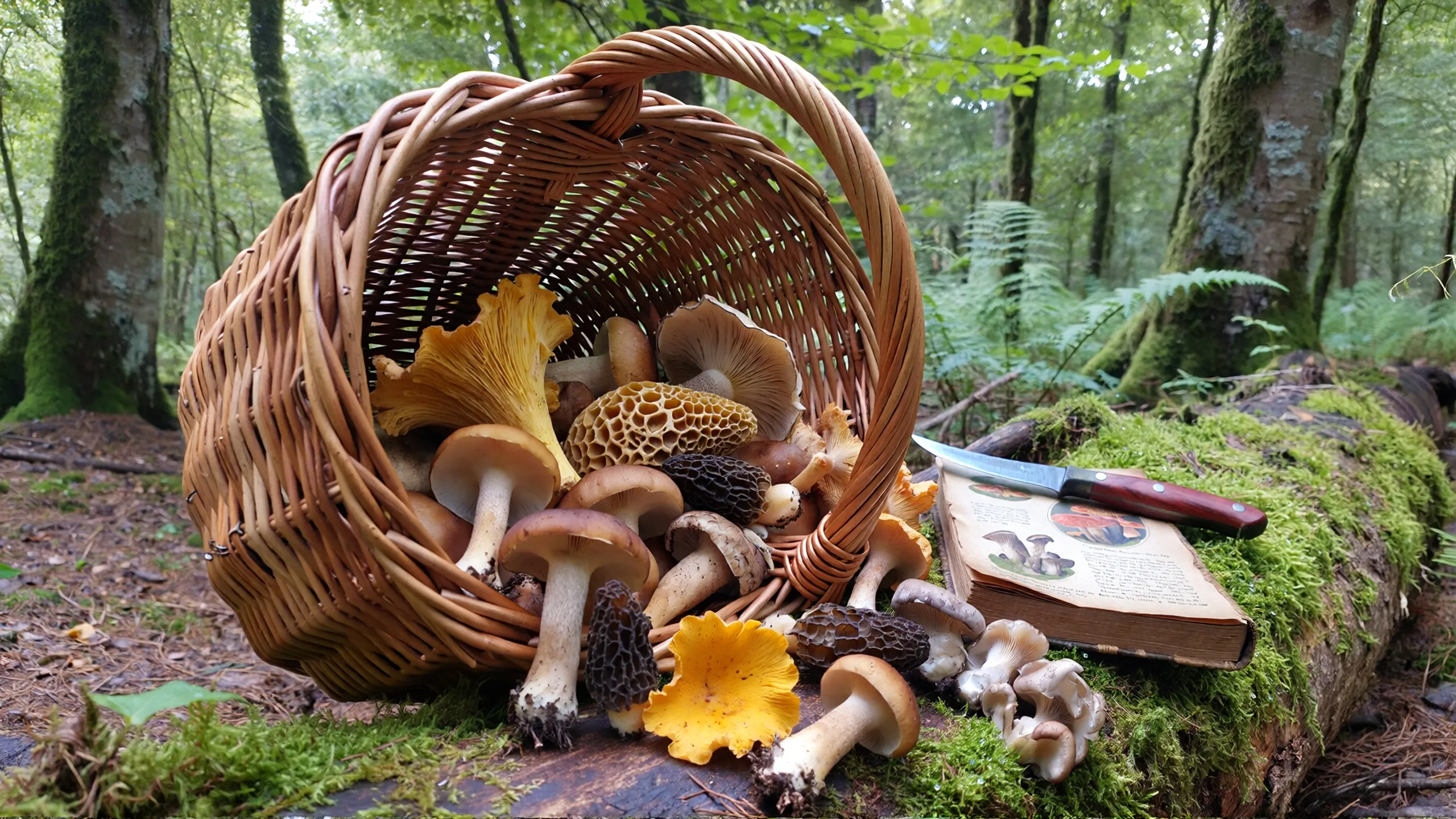

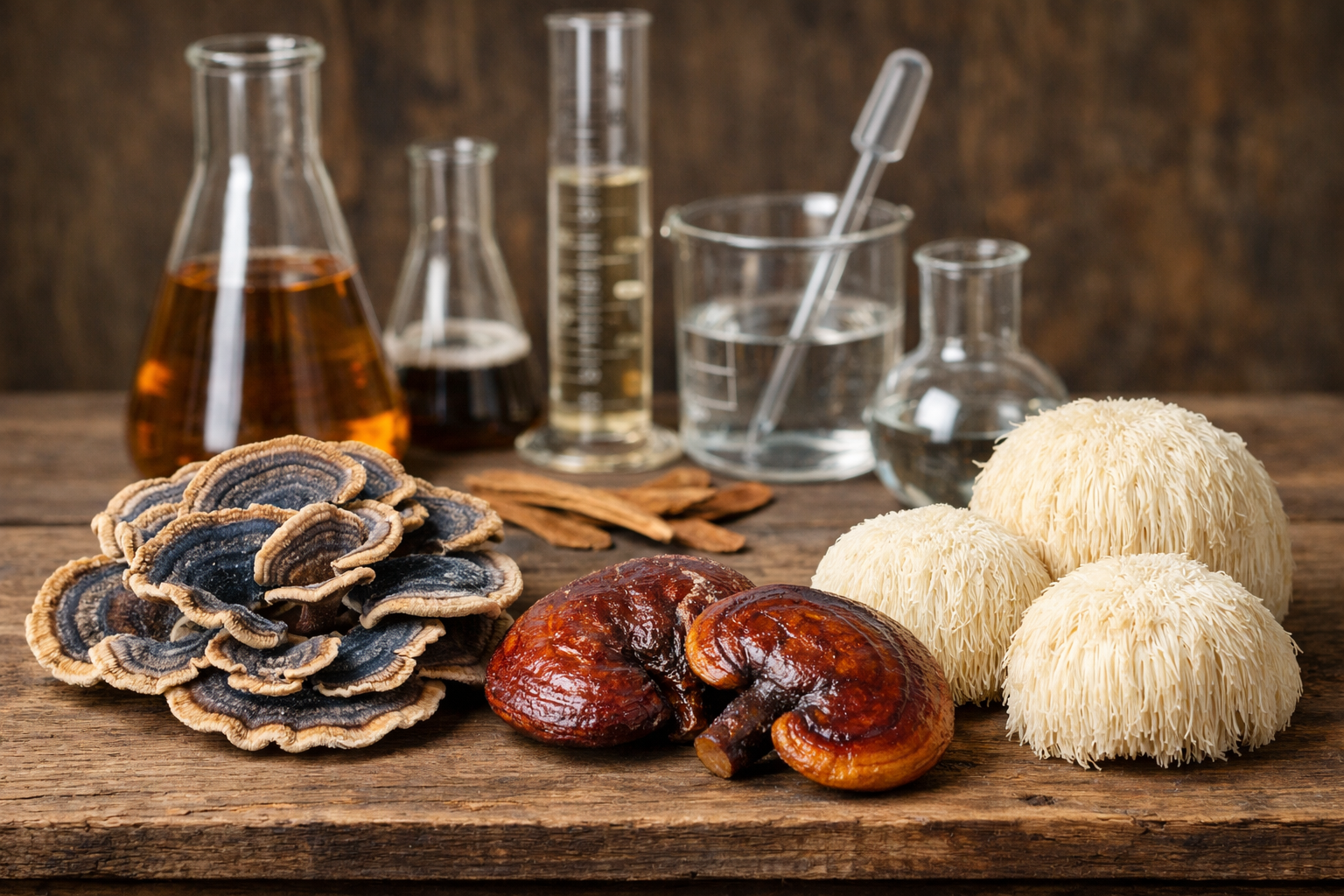
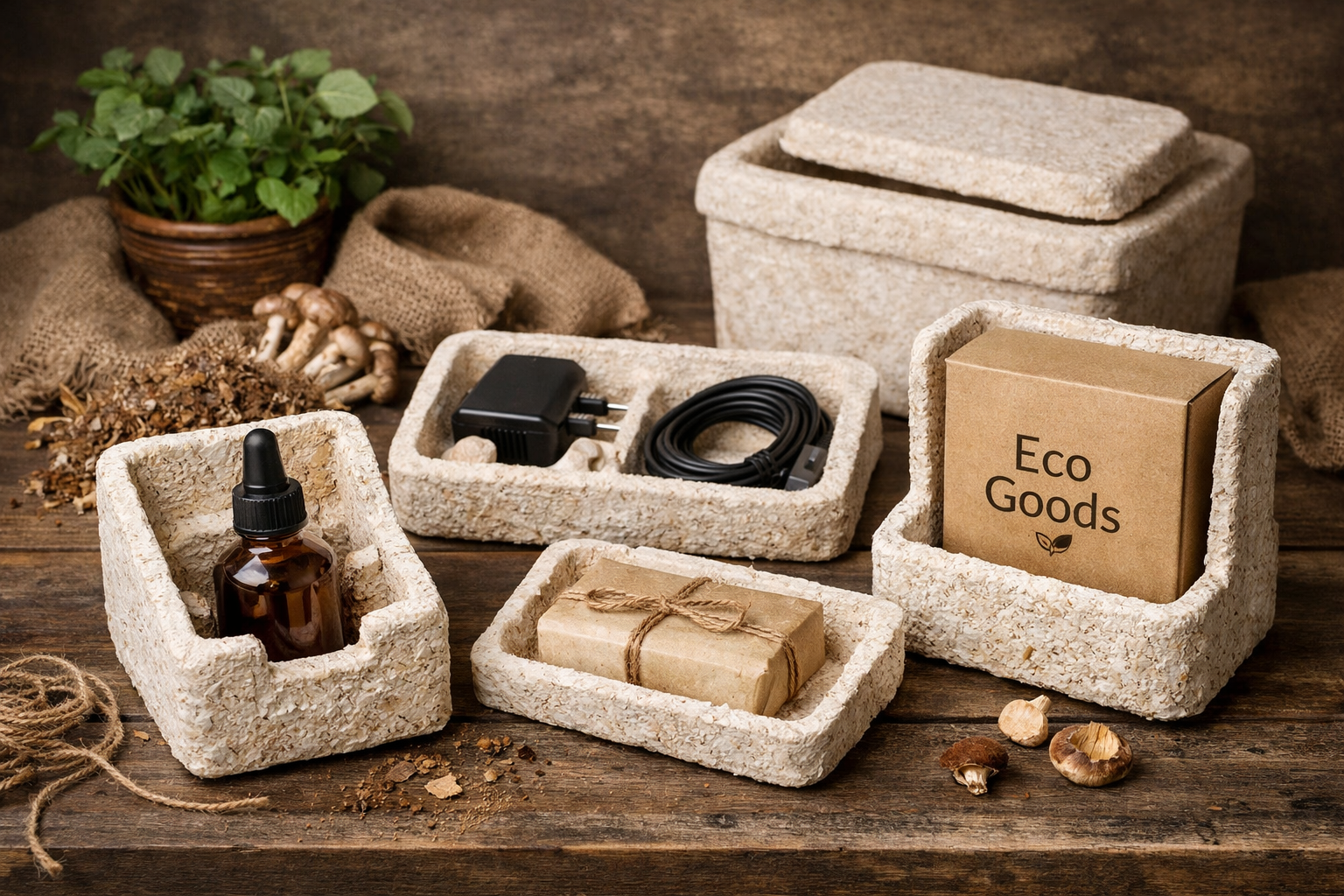

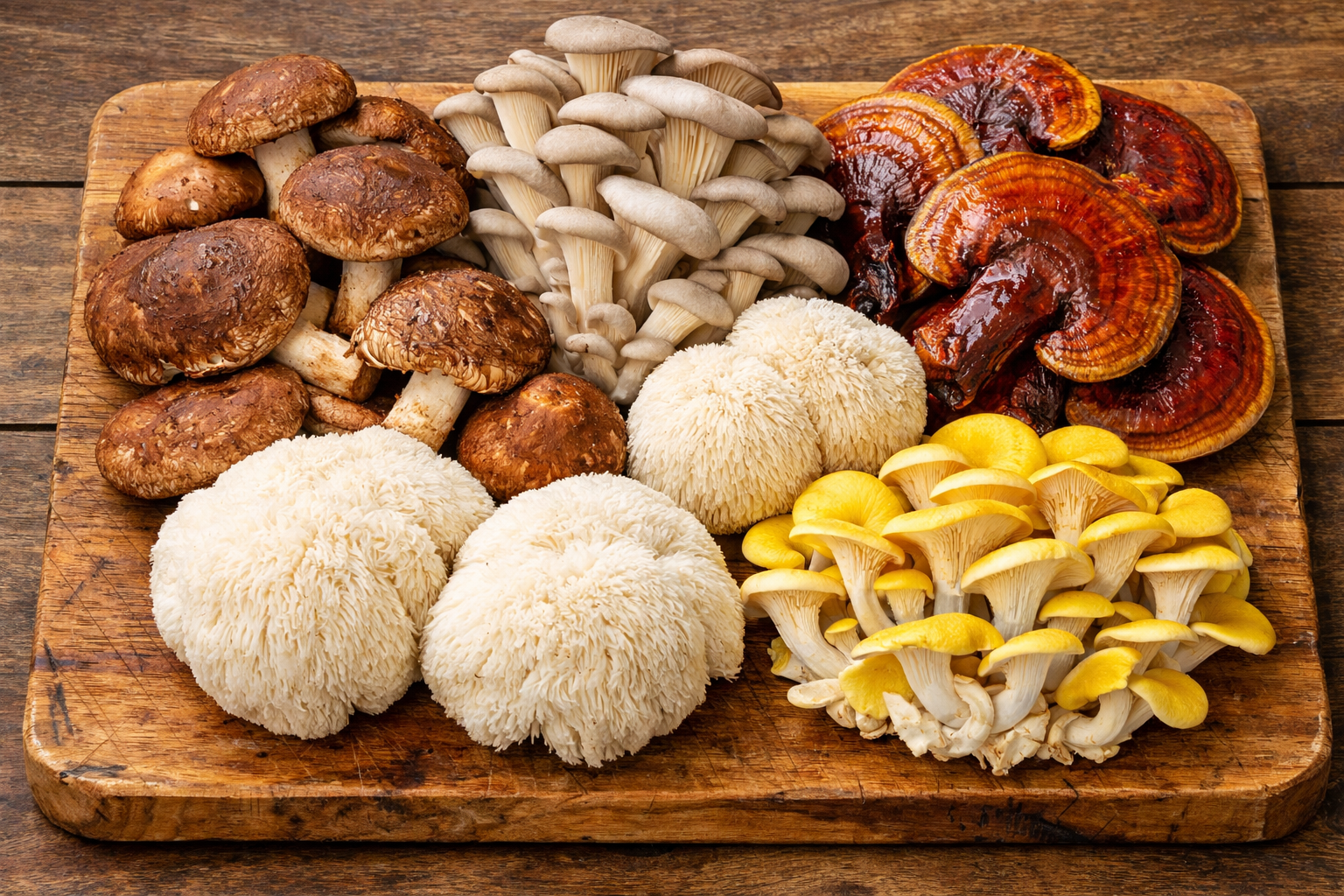


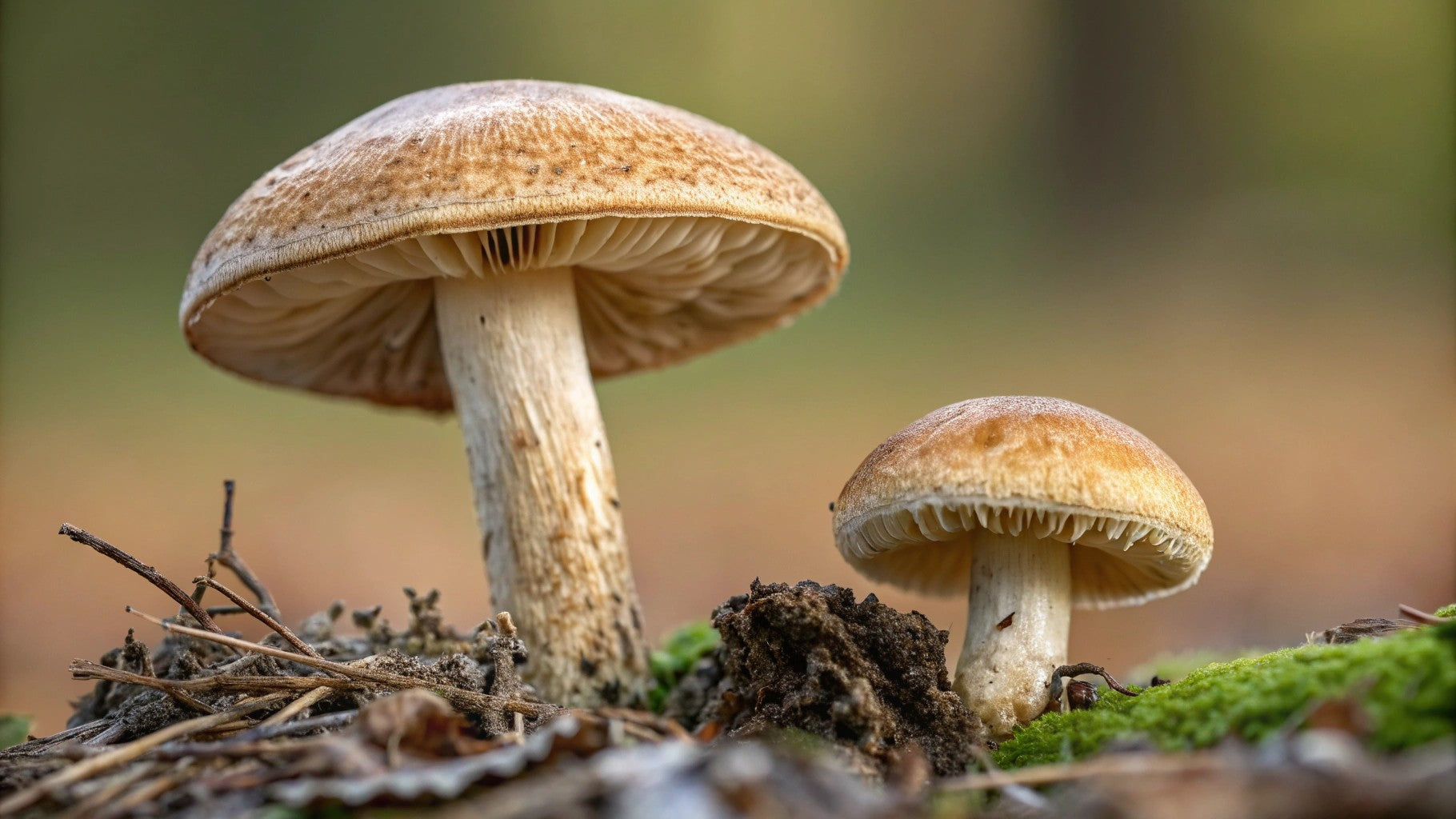

Share:
Shiitake Mushroom Soup: A Cozy and Nutritious Delight for Every Season
Reishi Mushroom Recipe: A Flavorful Adventure